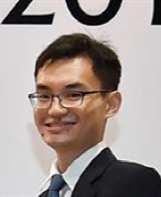主讲人:
Richmond Lee
教授
时间:6月19日上午10:00
地点:丽湖校区守信楼(原B1栋)420会议室

报告人简介:
Richmond Lee obtained his PhD in 2017 from the Australian National University under Australian Laureate Fellow Professor Michelle L. Coote. After PhD, he embarked on an independent fellowship at Singapore University of Technology and Design, following which he moved to the University of Wollongong in 2020 where he was awarded a Vice-Chancellor’s Research Fellowship for early career researchers. In the same year, he was also awarded a highly competitive fellowship from the Australian Research Council’s DECRA. He has published over 60 research works in high-impact journals, and his work is regularly cited (h-index 34). His expertise lies in employing computational chemistry to study catalytic processes, intersecting organic, organometallic, and physical organic chemistry, using modelling tools to gain insights into reaction mechanisms and knowledge crucial to build reliable predictions to understand chemistry reactivity that aid in development or discovery of new reactivity or catalyst design.
讲座摘要:
Green chemistry advocates the use of more environmentally benign or sustainable methods to improve the way we conduct or study chemical reactions. Catalysis, which is the employment of catalysts to improve chemical reactions, is a huge part of Green Chemistry and is a commonly employed strategy to reduce chemical waste generated and energy required to improve overall chemical efficiency.Congruent to the essence of Green Chemistry is the study of catalytic processes using computational modelling – a reliable and useful tool to improve our understanding of chemical reactions while mitigating environmental footprint.Computational chemistry provides a critical interface between theory and bench, which will revolutionize the way we conduct chemical research, by shifting the conventional ‘trial-and-error’ approach, towards employing a rational strategy to enable new green chemistry discovery and purposeful design of new and improved catalysts or chemical reactivity through a combined theory, simulation, and artificial intelligence approach.
This talk will address how computational chemistry will aid in our quest to enrich our understanding of chemistry towards sustainability and chemical design strategies.
欢迎有兴趣的师生参加!
